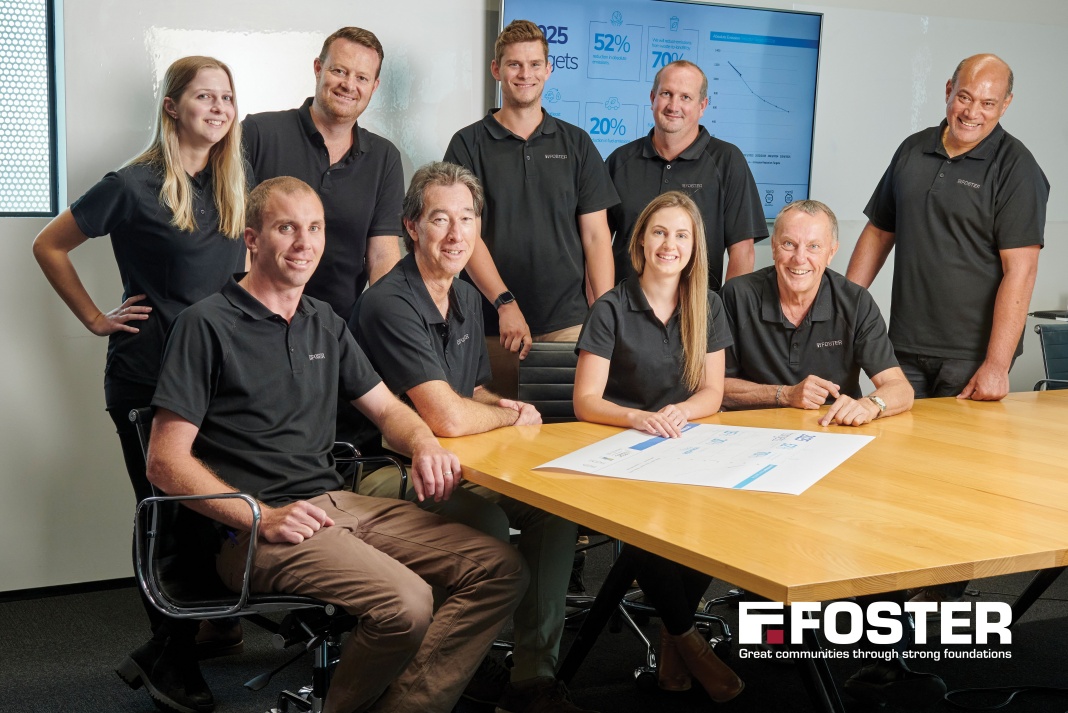The Foster Group is the only construction company in New Zealand to hold both of Toitū’s top sustainability certifications, carbonzero and enviromark diamond. They can also deliver Green Star builds.
To achieve the Toitū certifications, Fosters have already proven their commitment to the environment – they have analysed their impact, set objectives to improve their footprint and set up an environmental management system to help achieve their goals.
To maintain the certifications, they must continually set and achieve their goals to offer cleaner, more transparent, low-emissions builds, demonstrating they have gone above and beyond what is general practice.
What does Toitū carbonzero mean?
“Our carbonzero certification demonstrates that we are committed to ensuring the impact we have on the planet is consistently offset” explains Fosters Sustainability and Compliance Advisor Jael Clausen.
The construction industry produces 40-50% of NZ’s landfill waste. According to Thinkstep, it is one of the primary contributors to climate change in NZ, creating 20% of national greenhouse gas emissions. For Fosters, just because this is ‘industry standard’ does not mean it cannot be improved.
“Fosters acknowledges that we cause harm, so we’re taking the opportunity to invest in sustainable practices” Jael continues. “Because we manage a large variety of projects, we have gained knowledge on how to build sustainably and we have been able to invest in and implement best environmental practices.”
Fosters was awarded Toitū carbonzero certification in 2020. It means that clients can be confident their building has been constructed more sustainably and with less carbon emissions.
“Toitū reviews our greenhouse gas emissions annually under the international standard for carbon footprints, ISO 14064-1” says Jael. “They check our progress against our goals, and we must prove that we have reached our reduction target for the year.”
Each month the sustainability team record and analyse the group’s carbon emissions, monitoring trends and setting objectives to reduce fuel consumption, electricity usage, and waste-to-landfill.
Other initiatives include making an electric vehicle available for use by employees and utilising companies which generate 100 per cent renewable energy.
“We are targeting a 52 per cent reduction in emissions by 2025” says Jael. “That means achieving a 10 per cent reduction annually through less energy use, less waste and more efficient transport solutions.” Fosters passed their first audit in 2020 and recently completed the second one.
What does Toitū enviromark diamond mean?
“Our enviromark diamond certification demonstrates we have systems in place to reduce the environmental impact of our business and the buildings we construct” says Jael.
“To achieve this certification, we have developed, implemented, and now maintain a robust Environmental Management System, which is audited annually to ensure it meets and exceeds the components of an ISO 14001 system.”
For clients, the Toitū enviromark diamond certification proves that Fosters is managed responsibly with a whole of environment focus.
“Our clients can be confident that our team will do everything possible to mitigate any environmental impact during the construction process” says Jael.
“This is also important to our team and our contractors” she continues. “They can be confident we are following best practice, going above and beyond industry standard with continual improvement.”
Audited annually, Fosters must demonstrate environmental protection being put into practice. A simple example is recycling building materials.
Instead of one big skip on site (common on most building sites), you’ll find several bins on a Fosters site collecting concrete, steel, timber, plastics, glass, PVC pipe and many other materials for recycling.
What is a Green Star build?
Aimed at commercial buildings, Green Star is a holistic sustainability rating system for buildings, fitouts and communities. Fosters offer accredited professionals who are trained to manage Green Star projects to meet the extensive requirements.
“We appreciate the holistic approach to Green Star builds” says Jael. “That is reducing emissions with smarter building, energy and water savings, lower running costs to create healthier work environments and contribute to a better future. The concept is well aligned with Fosters’ purpose.”
APL in Hautapu is a Green Star project. Achieving a 5-star design rating in December 2020, the project is currently targeting a build rating. More Green Star projects are in the pipeline.
“Having inhouse knowledge of the Green Star principles, combined with the work of the sustainability team on Toitū, ensures there is a sustainable focus on every Fosters project” concludes Jael.
“We are proud to be frontrunners in our industry and it means that building with Fosters is better for the environment.”












